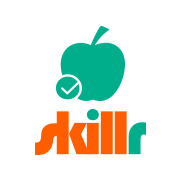Description

Essay Writer

Study Island
Comprehensive Overview: Essay Writer vs Study Island
Essay Writer and Study Island serve different educational purposes and target different markets, though both aim to support students and educators in the learning process.
Essay Writer
a) Primary Functions and Target Markets:
- Primary Functions: Essay Writer is typically a tool designed to assist students in developing writing skills. It might offer features such as grammar and spell checking, stylistic recommendations, plagiarism detection, and structural suggestions. The goal is to help users craft well-organized, polished essays.
- Target Markets: The primary users are students (from high school through college), educators, and potentially anyone interested in improving their writing skills.
b) Market Share and User Base:
- Essay writing tools are quite popular, often incorporated into broader educational platforms or as standalone apps. The market is competitive, with players like Grammarly, Turnitin, and similar tools dominating the space. Essay Writer might hold a niche position if it's part of a specialized educational platform.
c) Key Differentiating Factors:
- Usability and Interface: User-friendly interfaces that cater to different levels of writing proficiency can be a key differentiator.
- Integration with Educational Platforms: Essay Writer tools that seamlessly integrate with LMS (Learning Management Systems) might stand out.
- Advanced Feedback Mechanisms: Tools offering AI-driven or real-time feedback could provide an edge over more basic editors.
Study Island
a) Primary Functions and Target Markets:
- Primary Functions: Study Island provides standards-based instructional, practice, and assessment tools for K-12 students. It focuses on reinforcing skills through gamified learning modules, performance tracking, and benchmark testing aligned with state standards.
- Target Markets: K-12 schools, teachers, students, and districts. Study Island is often adopted institutionally rather than by individual users.
b) Market Share and User Base:
- Study Island is a well-established player in the online K-12 educational market, known for its focus on standard-aligned practice and assessment. It competes with other K-12 educational platforms like IXL, Khan Academy, and Edmentum solutions. Its market share can be significant in districts that prioritize standard alignment and test preparation.
c) Key Differentiating Factors:
- Alignment with State Standards: Study Island's ability to closely align with different state educational standards can make it very appealing to school districts.
- Customizable Content and Reports: Offering detailed analytics and customizable reports for educators to track student progress can set it apart.
- Engagement through Gamification: Unlike more traditional educational tools, Study Island incorporates gamification to enhance student engagement and motivation.
Comparison in Terms of Overall Market Share and User Base
In terms of market presence, Study Island typically has a stronger institutional footing, given its focus on K-12 standards and school district-wide implementations. Essay writing tools like Essay Writer might have a larger individual user base that spans educational institutions but also includes independent learners and professionals seeking writing assistance.
Conclusion
While both products seek to enhance educational outcomes, Essay Writer focuses on improving individual writing skills, appealing to a broad audience from students to professionals. In contrast, Study Island is more comprehensive for younger learners and institutions, with a strong emphasis on curriculum alignment and assessment in the K-12 market.
Contact Info

Year founded :
Not Available
Not Available
Not Available
Spain
Not Available

Year founded :
2000
Not Available
Not Available
Not Available
http://www.linkedin.com/company/study-island
Feature Similarity Breakdown: Essay Writer, Study Island
To provide a feature similarity breakdown for "Essay Writer" and "Study Island," let's go through each point:
a) Core Features in Common:
- Educational Focus: Both platforms are designed to assist students in their academic pursuits, though their focus areas differ slightly.
- Content Creation: Each platform offers tools for creating content—Essay Writer for composing essays and Study Island for answering questions and completing exercises.
- Feedback Mechanisms: They provide some form of feedback to help users improve. Essay Writer may offer grammatical and stylistic suggestions, while Study Island might give corrective feedback on quizzes or assignments.
- Performance Tracking: Both platforms offer tracking of user performance; Essay Writer through drafts and progress tracking, and Study Island via scores and progress reports on exercises.
b) User Interface Comparison:
- Ease of Use: Essay Writer is likely designed with streamlined editors for typing and organizing essays, focusing on a minimalist approach to avoid distractions. Study Island, on the other hand, might have a more structured interface with sections for different subjects and immediate feedback.
- Visual Design: Study Island often uses a more colorful, kid-friendly interface to engage younger users, reflecting its K-12 educational target. Essay Writer might appeal to older students or professionals with a more polished, straightforward design.
- Navigation: Study Island's interface is typically more navigationally rich, offering access to various subjects and types of exercises, whereas Essay Writer focuses on tools relevant to writing and editing documents quickly.
c) Unique Features:
- Essay Writer:
- Advanced Writing Assistance: Some versions offer AI-driven suggestions for improving writing, such as tone, style, and content organization.
- Citation and Formatting Tools: It may have integrated tools to assist with citations and adherence to different formatting guidelines like MLA, APA, or Chicago style.
- Plagiarism Detection: Offers tools to check originality and ensure proper citation.
- Study Island:
- Standardized Test Preparation: It provides practice geared toward standardized tests, mapping content to specific state standards.
- Interactive Learning Modules: Integrates game-like activities to reinforce learning in an engaging way.
- Customizable Assignments: Teachers have the ability to create and assign specific exercises to reinforce classroom learning.
In summary, while both platforms are educational tools, Essay Writer is more focused on assisting users with creating and refining written content, whereas Study Island provides a broad range of subject exercises aimed at improving academic performance and preparing for standard exams. Their interfaces reflect these focuses with different user engagement strategies and content provision methods.
Features

Writing Assistance
Collaboration Features
User-Friendly Interface
Research Tools

Engaging Practice Tools
Flexible Instructional Support
Comprehensive Reporting
Customizable Learning Paths
Best Fit Use Cases: Essay Writer, Study Island
Essay Writer and Study Island are educational tools that cater to different needs and are suited for various types of businesses or projects. Here's how they differ in terms of their best fit use cases:
Essay Writer
a) Best Fit Use Cases:
-
Educational Institutions:
- Schools and universities can use Essay Writer to assist students in developing their writing skills. It can be integrated into language arts courses to help students draft essays, conduct research, and enhance their writing proficiency.
-
Tutoring Services:
- Businesses offering tutoring services, especially in writing and language arts, can leverage Essay Writer as a tool for crafting high-quality essays and teaching students the nuances of good writing.
-
Content Agencies:
- Companies that provide content writing services can use Essay Writer for drafting articles, whitepapers, and reports efficiently. It helps in generating ideas and structuring content.
-
Freelance Writers:
- Freelancers who focus on writing can use Essay Writer to brainstorm and outline their work, ensuring all writing tasks are completed efficiently and professionally.
Study Island
b) Preferred Use Cases:
-
K-12 Schools:
- Study Island is ideal for K-12 education as it offers standards-based instruction and assessment tools. It provides teachers with a means to deliver customized learning paths for students and track their progress through assessments aligned with state standards.
-
After-School Programs:
- Programs focused on improving student achievement across various subjects, especially those looking to enhance test preparedness, will find Study Island's structured approach beneficial.
-
Home Schooling:
- Parents and educators involved in homeschooling can use Study Island to ensure their curriculum aligns with state standards and track student progress through its rich analytics and reporting features.
-
Educational Technology Companies:
- Companies developing educational content or products might use Study Island as a benchmarking tool for creating curricula that match educational standards and improve learning outcomes.
How They Cater to Different Industry Verticals or Company Sizes
Essay Writer:
- Industry Verticals: Mainly caters to the education sector, content creation, and publishing industries. Its appeal is more towards those needing strong written communication skills and content production.
- Company Sizes: Suited for small businesses like freelance writers to larger enterprises such as universities and content agencies, as its flexible use can scale according to the number of users and educational needs.
Study Island:
- Industry Verticals: Primarily serves the K-12 education market. It is also beneficial for educational technology firms focusing on creating engaging and standards-compliant e-learning solutions.
- Company Sizes: Ideal for educational institutions, ranging from small private schools to large public school districts. Its capabilities are particularly useful for organizations looking to manage learning outcomes and student performance at various scales.
In summary, Essay Writer is best for those focused on enhancing writing skills and content generation, whereas Study Island shines in structured, standards-based learning environments. Each product provides tools tailored to their respective roles in the education and content sectors.
Pricing

Pricing Not Available

Pricing Not Available
Metrics History
Metrics History
Comparing teamSize across companies
Conclusion & Final Verdict: Essay Writer vs Study Island
When evaluating Essay Writer and Study Island, it's important to consider their functionalities, target users, and overall value they provide to determine which product stands out as the best choice.
a) Best Overall Value
Essay Writer offers significant value for students and individuals focused on improving their writing skills, particularly in academic or professional settings. It provides tailored assistance in crafting essays, structuring arguments, and enhancing grammar and style. On the other hand, Study Island is designed primarily for educators and schools to facilitate learning through standards-based practice, offering interactive lessons and tracking student progress.
Verdict: If the primary goal is to assist with writing tasks and developing strong writing capabilities, Essay Writer presents the better value. However, for comprehensive educational support, particularly in a K-12 setting, Study Island might be more suitable due to its educational breadth and adaptability to different subjects.
b) Pros and Cons
Essay Writer:
Pros:
- Provides targeted assistance in writing, including grammar check, style enhancement, and structural guidance.
- Useful for developing essays, reports, and other written assignments.
- May include AI-generated feedback to help improve writing efficiency and quality.
Cons:
- Limited to writing support only; does not offer broader educational content or interdisciplinary integration.
- Effectiveness can hinge on the complexity of writing tasks and user engagement.
Study Island:
Pros:
- Offers a wide range of subjects, aligning with curriculum standards for K-12 education.
- Provides interactive lessons, quizzes, and progress tracking to enhance learning and student engagement.
- Supports teachers with tools to customize assignments and track student progress.
Cons:
- May not provide the specialized writing support that Essay Writer offers.
- Primarily designed for formal education environments, which might limit its utility for individual users focused solely on writing.
c) Recommendations
For users deciding between Essay Writer and Study Island:
-
Assess Needs and Context: If the primary focus is on improving writing skills, Essay Writer is the better choice. For educators or students needing comprehensive subject coverage with interactive learning support, Study Island is likely more beneficial.
-
Evaluate Cost and Usability: Consider budget constraints and how each product fits into your existing workflow or educational environment. Essay Writer tends to focus more narrowly, which might be cost-effective for targeted writing help, whereas Study Island could require a broader implementation within a school setting.
-
Trial Period or Demos: If available, take advantage of trial periods or demos to experience firsthand how each product meets your needs and preferences before making a final decision.
Ultimately, the decision between Essay Writer and Study Island should be guided by the user’s educational goals, the environment in which they're applied, and how each tool aligns with individual or institutional requirements.
Add to compare
Add similar companies



